Letting Go in Love
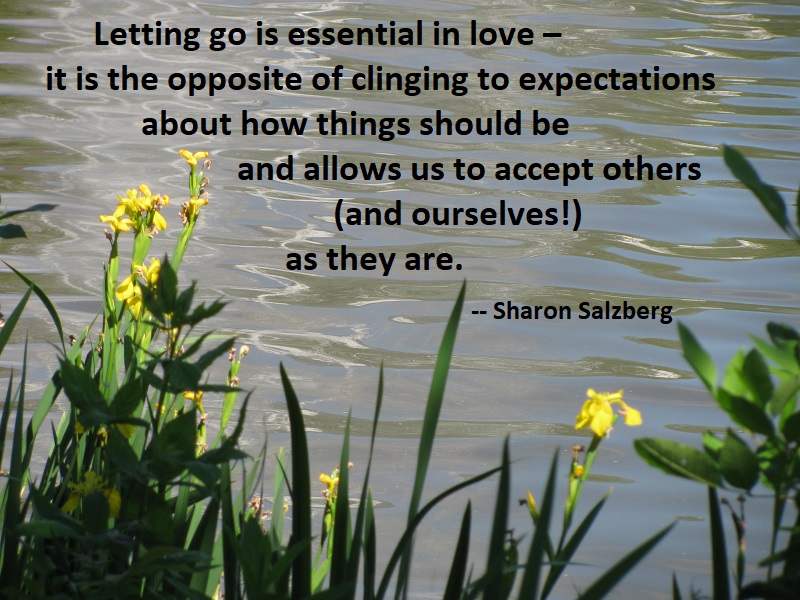
Letting go is essential in love – it is the opposite of clinging to expectations about how things should be and allows us to accept others (and ourselves!) as they are.
— Sharon Salzberg, Real Love, p. 293

Letting go is essential in love – it is the opposite of clinging to expectations about how things should be and allows us to accept others (and ourselves!) as they are.
— Sharon Salzberg, Real Love, p. 293
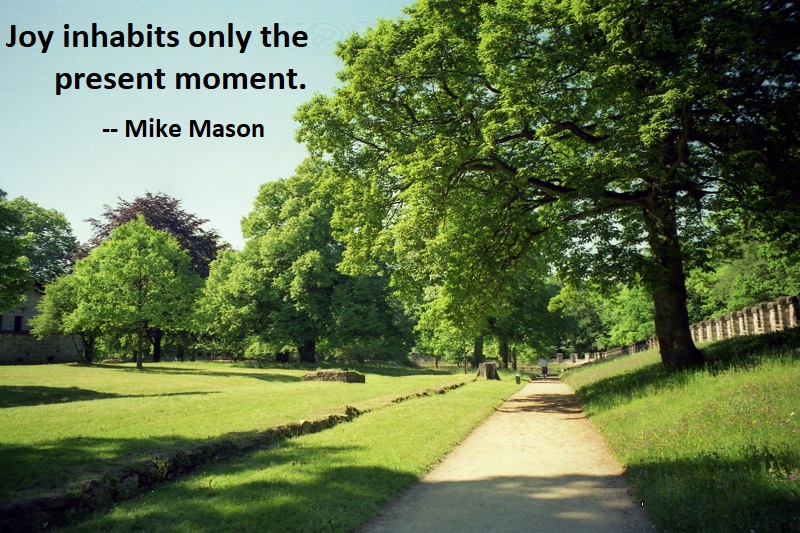
If I’m trying to be happy today in the same way I was happy yesterday, I’ll fail. The manna of joy falls in limitless supply, but each day’s rations must be gathered afresh. Joy inhabits only the present moment; if I can’t embrace it now, it’s gone.
What keeps me from seizing joy in the moment? Sorrow, obviously; yet joy too, either remembered or anticipated, can alienate me from present reality. Great things have happened and will happen, but they cannot compare with what God does right now, that His power and glory may continually spring forth fresh.
— Mike Mason, Champagne for the Soul, p. 141
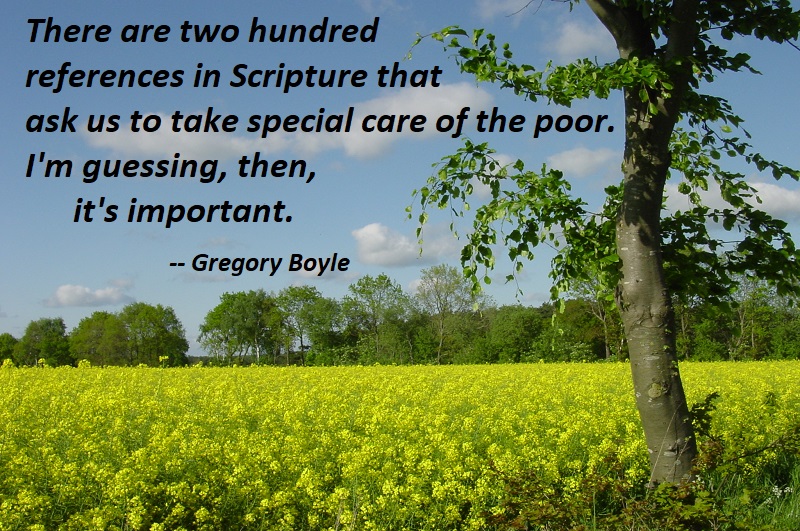
There are two hundred references in Scripture that ask us to take special care of the poor. I’m guessing, then, it’s important. It is this preferential care and love for the poor that sets the stage for the original program. It doesn’t draw lines — it erases them. It rises above the polarizing temperature of our times. It doesn’t shake its finger at anybody but instead helps us all put our finger on it. We could ask ourselves, I suppose, if God is conservative or liberal, but I think that’s the wrong question. Instead we should ask: Is God expansive or tiny? Is God spacious or shallow? Is God inclusive or exclusive? What are the chances that God holds the same tiny point of view as I do? Well, zero.
— Gregory Boyle, Barking to the Choir, p. 164
Photo: Wildeshausen, Germany, May 16, 2004
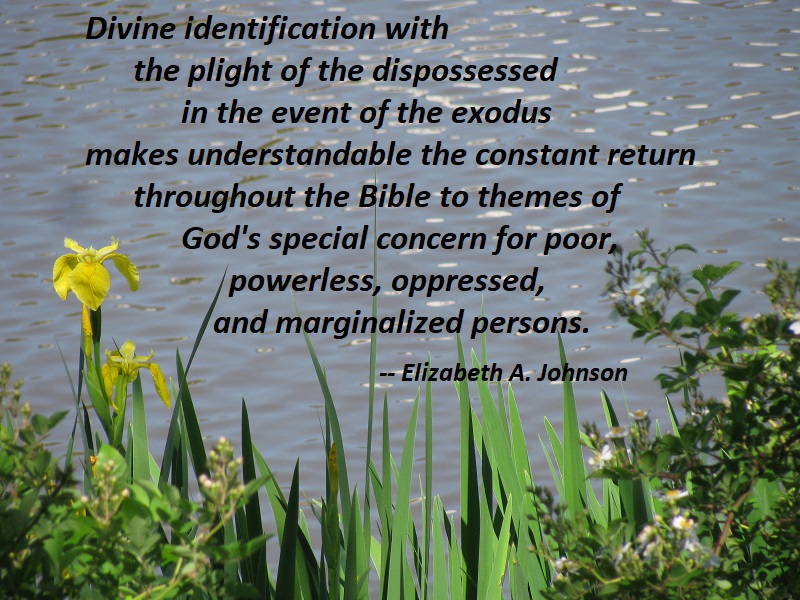
Divine identification with the plight of the dispossessed in the event of the exodus makes understandable the constant return throughout the Bible to themes of God’s special concern for poor, powerless, oppressed, and marginalized persons. Gracious and merciful, God acts to make a new future possible. Such compassionate concern also undergirds the great biblical ethic of hospitality: “You shall not wrong or oppress a resident alien, for you were aliens in the land of Egypt” (Ex 22:21); and more positively, “You shall love the stranger, for you were strangers in the land of Egypt” (Deut 10:19). The people liberated from slavery must act in like manner as the Holy One who delivered them.
— Elizabeth A. Johnson, Creation and the Cross, p. 38
Photo: South Riding, Virginia, May 15, 2019
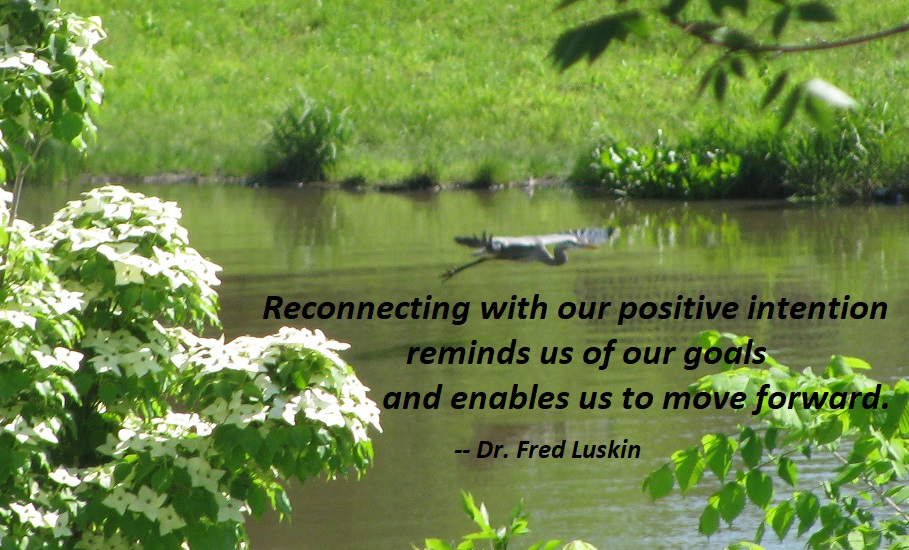
Our positive intention reminds us of the life goals that dwelling on painful experience has shifted aside.
The biggest drawback to telling grievance stories is they keep us connected in a powerless way with people who have hurt us. When we mull over our past wounds and hurts, we remind ourselves of a part of our life that did not work. Reconnecting with our positive intention reminds us of our goals and enables us to move forward.
Positive intention can be defined as the strongest positive motivation we had for being in the grievance situation in the first place…. All grievances start with a situation that did not work out. We had an experience where either we did not get what we wanted or we got something we did not want. In either case, we wanted something for our well-being. Our positive intention is remembering what that something was and expressing it in the most beneficial terms we can find.
— Fred Luskin, Forgive for Good, p. 142
Photo: South Riding, Virginia, May 15, 2019
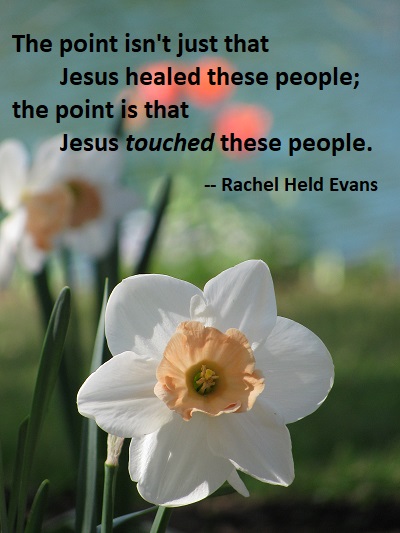
In all three stories, the point isn’t just that Jesus healed these people; the point is that Jesus touched these people. He embraced them just as he embraced other disparaged members of society, often regarded as “sinners” by the religious and political elite — prostitutes, tax collectors, Samaritans, Gentiles, the sick, the blind, and the deaf.
— Rachel Held Evans, Inspired, p. 184
Photo: Meadowlark Gardens, Virginia, April 3, 2012

God, right there, today, in the person in front of me, joy beyond holding, beholding this day, Paradise. You delight in what is before you today in Christ. Richard Rolheiser writes that, “the opposite of depression is not happiness, it’s delight.” After all, we breathe the Spirit that delights in our being. We don’t breathe in the Spirit that just sort of puts up with our mess. It’s about delight.
— Gregory Boyle, Tattoos on the Heart, p. 159
Photo:Â Bull Run Regional Park, Virginia, April 8, 2019
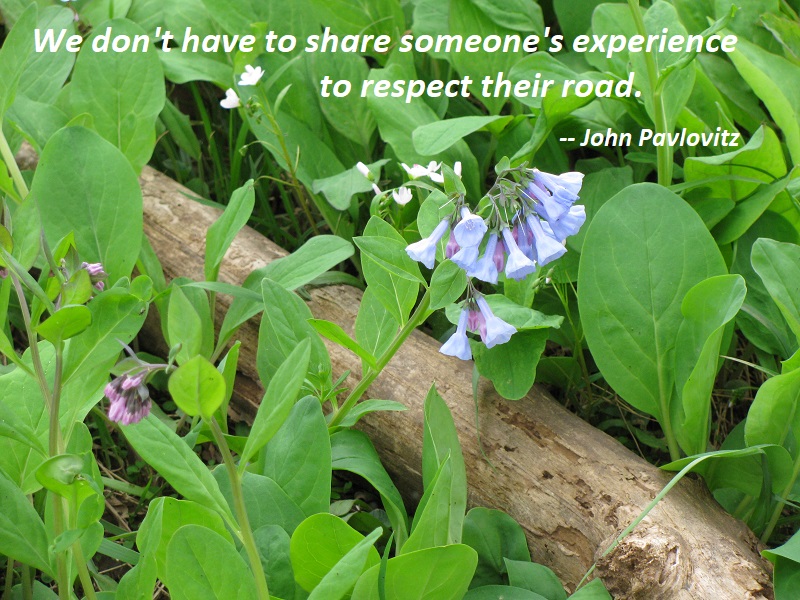
I know that for many people of faith, maybe even for you, LGBTQ acceptance is still, in a very real way, a spiritual world rocker. I pray that if you are unsure how to respond to someone who comes out to you, you’ll take a cue from my father, who — despite all he didn’t know or understand in the moment — didn’t feel a pressing need to lecture, preach, or answer every question. He simply made sure that his love was the loudest thing he spoke. He didn’t realize it then, but he was showing me Jesus in a way that surprised and inspired and transformed me.
Friend, the heart of the bigger table is the realization that we don’t have to share someone’s experience to respect their road. As we move beyond the lazy theology and easy caricatures that seek to remove any gray from people’s lives, we can meet them in that grayness, right where they are, without demanding that they become something else in order to earn proximity to us or to a God who loves them dearly. Just as was true in the life and ministry of Jesus, real love is not contingent upon alteration, it simply is. There is no earning of fellowship or deserving of closeness; there is only the invitation itself and the joy that comes when you are fully seen and fully heard. When in Rome, you shouldn’t need to do as the Romans do in order to be welcomed. You are already welcomed.
— John Pavlovitz, A Bigger Table, p. 18-19
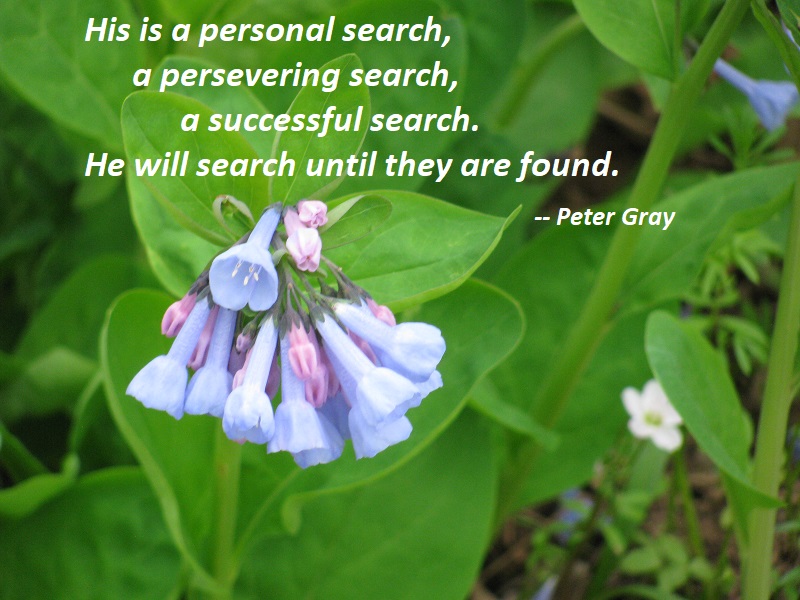
What may we say was the reason for the lost sheep becoming found? Was the sheep saved by the doing of good works? Was the sheep saved by the following of law or commandment? Was the sheep saved because it recognized its own state of ‘lost-ness’, and went searching for its shepherd? Heaven forbid! The lost sheep was found for one reason and one reason alone. The lost sheep was found because the Good Shepherd came looking. The shepherd commenced a search and rescue operation that would never finish, until his sheep was found.
His is a personal search, a persevering search, a successful search. He will search until they are found. The lost sheep contributed nothing to its being found.
— Peter Gray, Until They Are Found, p. 26
Photo: Bull Run Regional Park, Virginia, April 8, 2019
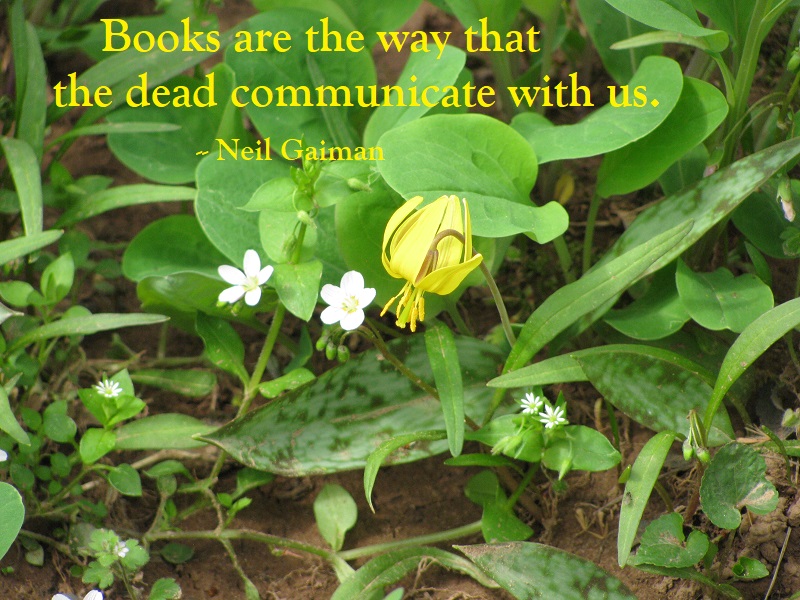
Books are the way that the dead communicate with us.
The way that we learn lessons from those who are no longer with us, the way that humanity has built on itself, progressed, made knowledge incremental rather than something that has to be relearned, over and over.
— Neil Gaiman, Art Matters, “Why Our Future Depends on Libraries, Reading and Daydreaming”
Photo: Bull Run Regional Park, Virginia, April 8, 2019